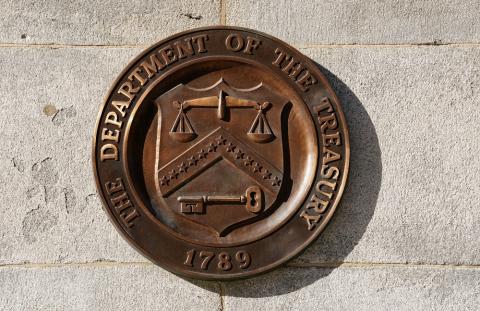
After the US pulled out of the Joint Comprehensive Plan of Action, better known as the Iran nuclear deal, it re-imposed primary and secondary sanctions on the Islamic Republic. The sanctions cover various Iranian industries and sectors, including energy (gas, oil and petrochemicals), the banking system, currency, financial transactions, the automotive and construction industries, as well as mining and telecommunications and the export of electronics and computers.
A common misconception is that the US sanctions solely target American entities. In order to attract financial deals and more trade with foreign entities, the Iranian leaders have also been spreading the narrative that business with the Islamic Republic is as usual and Tehran’s transactions with foreign companies have not been impacted because the US sanctions are trivial and inconsequential.
But investors ought to be extremely cautious due to the fact that the newly re-imposed sanctions against Tehran target not only US entities but also non-American companies, firms and individuals.
Most recently, Meng Wanzhou, the chief financial officer of Huawei, the largest telecoms equipment maker in the world, was arrested in Canada at the request of American authorities. Previously, China’s ZTE Corp pleaded guilty to breaking US sanctions against the Iranian regime.
The US Treasury Department has clearly warned that the Iran sanctions are not limited to Iranian or US entities. It gave warning when it stipulated: “Non-US, non-Iranian persons are advised to use these time periods to wind down their activities with or involving Iran that will become sanctionable at the end of the applicable wind-down period.”
The arrest of Meng is also significant for foreign investors for several other reasons. First of all, there has been a misconception that the US will not be taking serious measures against foreign entities that deal with the Iranian regime. Meng’s is the first case since the re-imposition of the US sanctions on Iran where a prominent non-American citizen has been accused of violating the sanctions.
The Trump administration is attempting to send a robust message that violations will not be tolerated. Status, position or wealth will not necessarily make foreign investors immune to the repercussions and penalties of violating US sanctions on the Iranian regime.
Investors ought to be extremely cautious due to the fact that the newly re-imposed sanctions against Tehran target not only US entities but also non-American companies, firms and individuals.
Dr. Majid Rafizadeh
Secondly, although any non-American entities that continue to carry out transactions with the Tehran regime may believe that they are immune from US sanctions because they are not based in the US, Washington enjoys adequate financial and political leverage to pressure them. For instance, in the case of Meng, the US pressured the Canadian authorities to arrest her and start extradition proceedings.
Another risk for foreign investors dealing with the Iranian regime and violating Iran’s sanctions is that the US can ban American companies and individuals from conducting business with them. For example, when ZTE Corp breached US sanctions by exporting technology that was made in the US to Iran, Washington banned American companies from dealing with the company. The financial pressure against ZTE became significant to the extent that it agreed to pay a $1 billion fine to have the US ban removed.
The objectives behind the sanctions are to cut off the flow of funds to the Iranian regime and significantly impact its efforts to fund and sponsor terrorist and militia groups across the region. Furthermore, some targeted sanctions are aimed at restricting those Iranian officials who are blacklisted. And the sanctions are working. Despite Tehran’s efforts to dismiss them, Iranian leaders are very concerned and apprehensive as they have already witnessed the financial repercussions of the previous sanctions.
While some foreign companies and corporations are taking Iran’s sanctions lightly, others have wisely taken calculated measures. For instance, when the nuclear deal was reached, Total — one of the seven “super-major” oil companies in the world — signed a significant deal worth an estimated $5 billion to develop Iran’s South Pars, which was going to be the world’s largest natural gas field. But the French energy giant, like some other foreign companies, quit its project and took immediate action to back out of Iran’s market once the US announced that it would re-impose sanctions.
Some foreign companies may find doing business with the Iranian regime appealing because it has the largest untapped emerging market in the world, the second-largest economy in the Middle East and North Africa after Saudi Arabia, and an estimated $1 trillion-plus of purchasing power parity.
But it is important to point out that foreign firms should be extremely cautious about conducting business dealings with Iran due to the fact that the risks outweigh the benefits. Non-American individuals and companies run the risk of losing their business with the US and being subject to the sanctions.
In conclusion, the latest development highlights the fact that the US is determined and committed to pressure the Iranian regime and take action against those foreign firms and individuals that carry out business deals with Tehran in violation of its sanctions against Iran.
Dr. Majid Rafizadeh is a Harvard-educated Iranian-American political scientist. He is a leading expert on Iran and US foreign policy, a businessman and president of the International American Council. Twitter: @Dr_Rafizadeh
Disclaimer: Views expressed by writers in this section are their own and do not necessarily reflect Arab News" point-of-view












